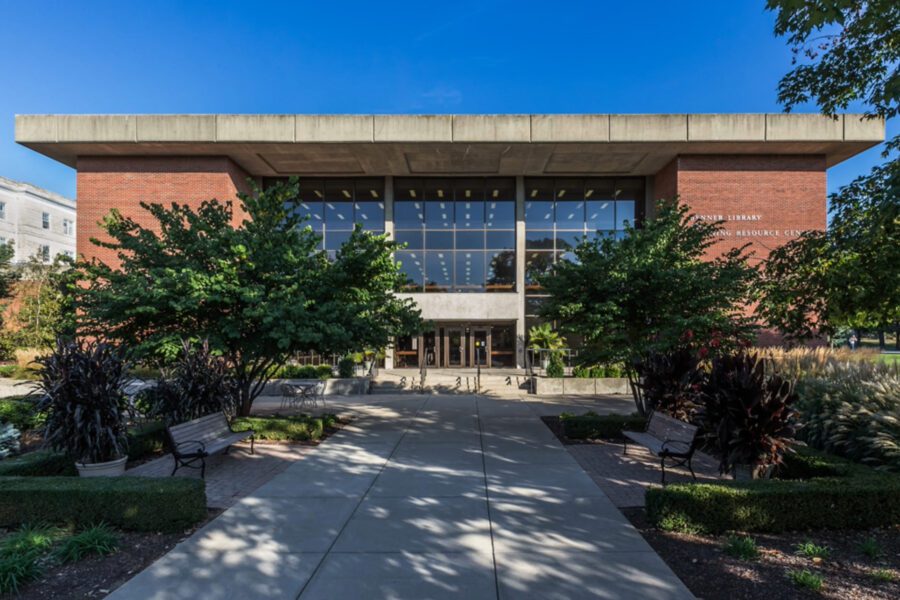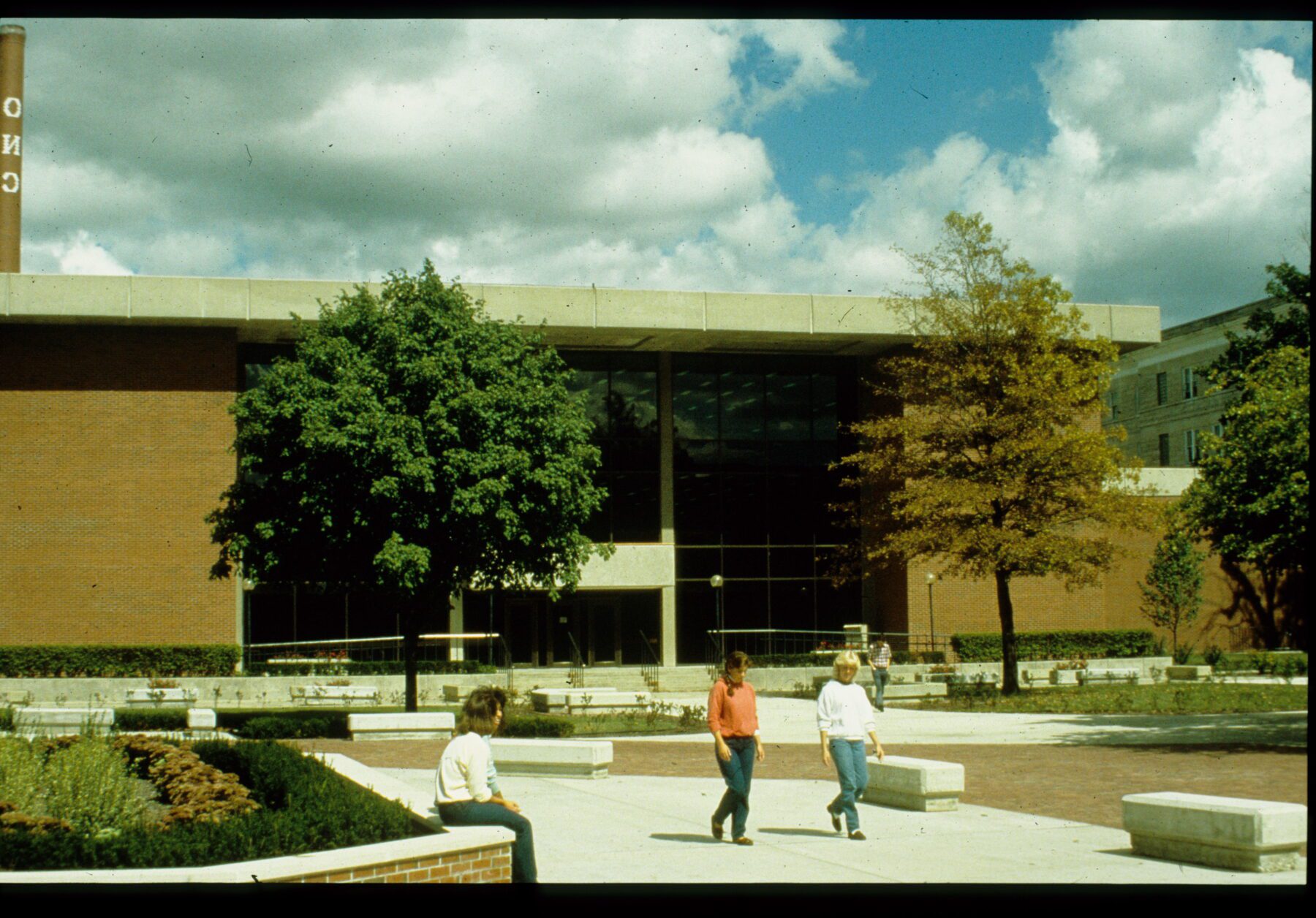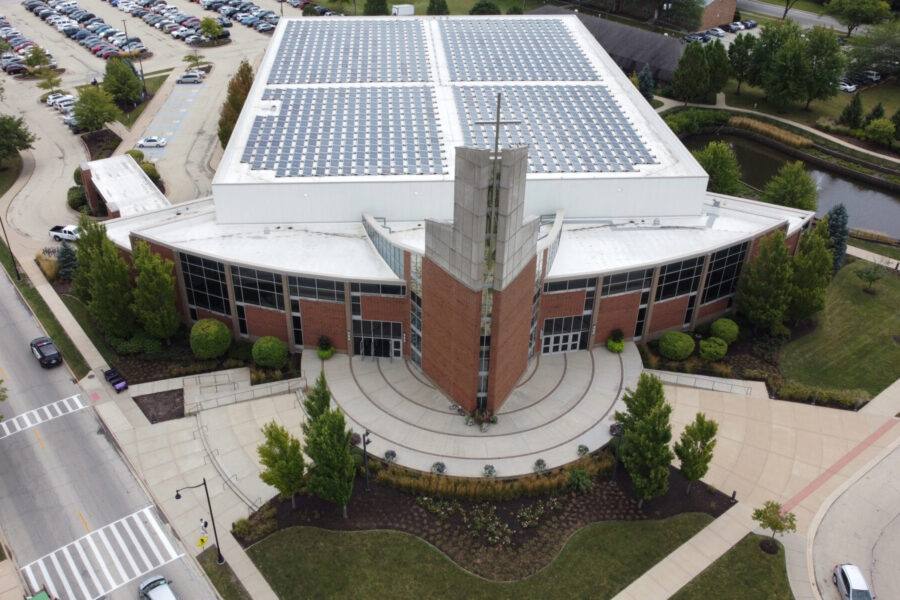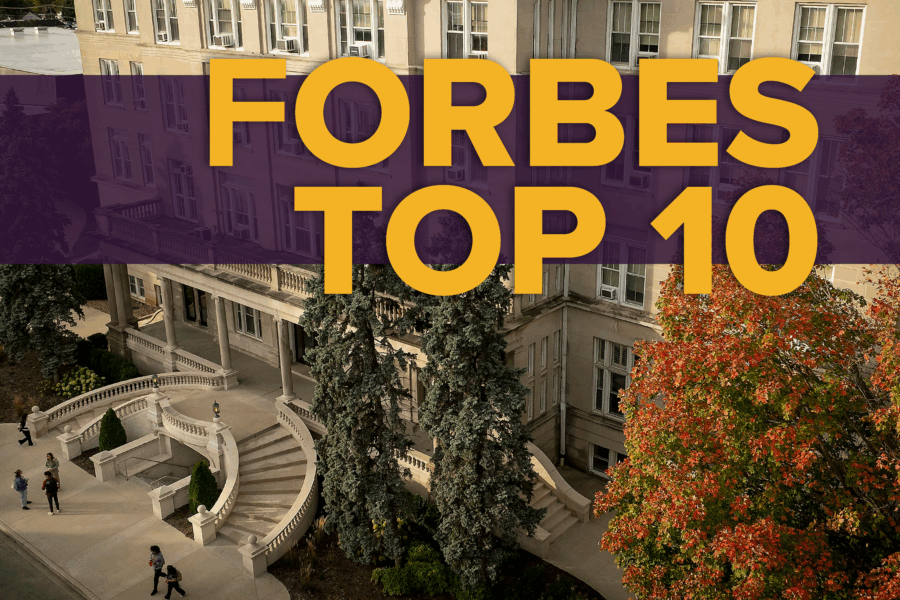
A library is to a university what water is to a fish. The books and resources within the building are the essential elements that keep students, faculty and staff afloat and nourished in an intense academic environment.
For 50 years, Olivet Nazarene University’s Benner Library has contained a host of foundational educational resources to stimulate the mind, as well as a physical location for the campus community to study, explore, rest and connect in an iconic building. But, as Pam (DeZwaan) Greenlee ’70/’14 MOL, MLS, director of library services, recounts in the following history, the importance of Benner Library extends far beyond bookshelves and computer lab, and out into the world through the impacted lives of people.
Benner Library History, as told by Pam Greenlee
The history of Olivet’s library, of course, precedes Benner Library. Information about the library at Old Olivet is sketchy guesswork until Miss Gilley was hired in 1939. Miss Gilley moved with the campus to Bourbonnais in 1940, and set up the new campus library in Burke.
Memorial Library was constructed in 1956 under her leadership, but by 1966, University President Dr. Harold Reed was talking about expansion. That expansion occurred in 1975 under Library Director Allan Wiens (dir. 1967-1992), when the much larger south addition was added. The library was renamed Benner Library after Hugh C. Benner, a 1919 graduate of Olivet College, who became a teacher, minister and general superintendent in the Church of the Nazarene.
In the new addition, the library continued to grow very traditionally, organized with the Dewey decimal system and the old card catalog, and containing primarily print resources. But dramatic changes begin in the 1990s as computers offered irresistible efficiencies in library work.
Under the leadership of Kathy Boyens (dir. 1992-2016), and the considerable interest and technical skill of Craighton Hippenhammer, the library began a comparatively swift and dramatic change. Hippenhammer helped integrate technology and PCs into the library work flow and developed open source software for interlibrary loan sharing. In alliance with campus IT, he launched the Library Informatics Department to deal with library specific software and training.
Within a few years, the print card catalog was obsolete. Electronic databases were developed and were embraced with enthusiasm, even though they are far more expensive than print. By 2025, 90% of the total materials budget is dedicated to electronic resources. We currently exchange eResources in elite, worldwide, electronic sharing groups who offer extensive resources and quick turnaround time. Through the statewide interlibrary loan service, our patrons have access to the holdings of nearly every Illinois academic library, and of most public libraries.
While electronic access is easy, students still use (and many prefer) our print holdings. Two collections are used most — religion and philosophy items have the highest circulation counts, and juvenile–young adult literature runs a close second. That juvenile/YA collection supports our School of Education and provides some of the leisure reading that college students enjoy.
Other departments have shared Benner Library space from its beginning. IT early on included a modern computer center, data processing, audio-visual equipment and a television studio. The Curriculum Center/Elementary Education Learning Resource Center; the campus radio station; and the Education Department all took up space at various times. Now, the University Archives and the Learning Development Center; the Department of Communications; the Center for Academic Excellence; the Office of Accessibility and Disability Resources; and the Department of General Studies are all housed in the library as well.
From the earliest years until now, the purpose of the library has been to serve our patrons and support university scholarship under the broader university goal of providing “Education With a Christian Purpose.” The library has a Holiness Reading Room dedicated to historical materials in the Wesleyan and Holiness traditions and the display of Wesley lusterware from early Nazarene camp meetings. The third floor houses a larger space designated the “Religion Room” that includes both Wesleyan and other perspectives of Christian scholarship.
The library collection policy includes varied views across all disciplines, offering opposing ideas to encourage our young scholars to develop critical thinking, but our heart is always for them to seek the Truth in Christ.
Upcoming 50 Year Celebration Events & Activities
To celebrate the past 50-plus years of the campus library, Benner is hosting a score of events this fall for the campus community and general public to attend. Visit library.olivet.edu/about/events for more information.
Library Art Show Tracing Our History Since Relocating to Bourbonnais
Ongoing fall 2025 | Benner Library, first floor Art Gallery
Homecoming & Family Weekend 2025
Thursday, October 16–Saturday, October 18
Join us at Benner Library as we celebrate 50 years of scholarship & service
- Book Sale | begins Wednesday, October 15
- Silent Auction | Wednesday, October 15–Saturday, October 18
- Artist Talk with senior, Bryson Doering — Faith Formed in Clay | Thursday, October 16 from 7:00-8:30 p.m. | Benner Library, lower-level Holiness Reading Room
- Escape Room, Trapped in Time: Escape Benner 1975 | Thursday, October 16–Saturday, October 18 | Benner library, lower-level Service desk (ticketed event)
- Celebration Kick-off | Friday, October 17 from 11:30am–12:00pm | Weather permitting, the celebration will take place outside in the newly-renovated Quad; otherwise, Benner Library, first floor
- University Archives Open House | Friday, October 17 from 12:00–3:30 p.m. | Benner Library, First Floor by University Archives
- Benner Library Open House | Saturday, October 18 from 10:00 a.m.–4:00 p.m.
- Library Employee Reunion | Saturday, October 18 from 10:00 a.m.–1:00 p.m. | Benner Library, Fishbowl
- Music Bingo | Saturday, October, 18at 10:30 a.m., 11:30 a.m., 12:30 p.m., 1:30 p.m., 2:30 p.m. | Benner Library, first floor by University Archives





